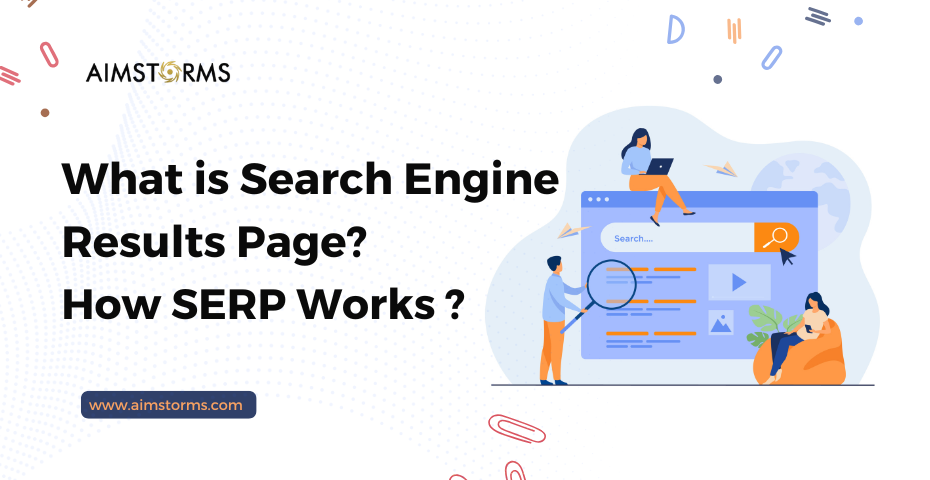Imagine searching for something on Google, and within seconds, you get hundreds of results. But have you ever wondered how Google decides what appears at the top? This is where SERP (Search Engine Results Page) comes into play. If you’re a business or a brand looking to rank higher, understanding how SERP works is crucial.
What is Search Engine Results Page (SERP)?
SERP (Search Engine Results Page) is the page displayed by a search engine when a user enters a query. It includes organic results, paid ads, featured snippets, and other search-related elements. The primary goal of a SERP is to deliver the most relevant and useful results to the user based on their search intent.
Every search engine, whether it’s Google, Bing, or Yahoo, has a unique algorithm to generate these results. The key factor here is SEO (Search Engine Optimization), which determines how well a website ranks on the SERP.
Components of a Search Engine Results Page
A SERP isn’t just a simple list of links. It consists of multiple elements, each playing a significant role in providing valuable information to users. Let’s break them down:
1. Organic Search Results
These are the unpaid results that appear based on relevance, quality of content, and SEO factors. Websites ranking high in organic search results have well-optimized content, good backlinks, and an effective SEO strategy in place.
2. Paid Search Ads (PPC)
Paid ads appear at the top or bottom of SERPs and are marked as “Sponsored” or “Ad.” Companies bid for these positions through Google Ads or other platforms to get instant visibility. While organic rankings take time, PPC ads provide immediate exposure.
3. Featured Snippets
These are short, highlighted answers displayed at the top of the SERP, providing direct information to users. Featured snippets can be in the form of paragraphs, lists, tables, or videos. Optimizing content for snippets increases the chances of being featured.
4. People Also Ask (PAA) Section
This section contains frequently asked questions related to the search query. Clicking on any question expands it with a quick answer and a link to the source.
5. Local Pack (Google My Business Listings)
For location-based searches, Google displays a Local Pack, which includes business listings, maps, ratings, and contact details. Businesses appearing in the local pack gain high visibility, especially for local searches.
6. Image & Video Results
Depending on the query, SERP may also include image carousels or video suggestions. Google prioritizes diverse content formats to enhance user experience.
How Does Google Determine SERP Rankings?
Search engines use complex algorithms to rank websites on SERPs. Some key factors influencing rankings include:
1. Relevance & Search Intent
Google ensures that the results match the user’s intent. Whether the query is informational, navigational, or transactional, the algorithm prioritizes pages that best answer the query.
2. Keyword Optimization
Using relevant keywords strategically in titles, meta descriptions, and content helps search engines understand the topic. However, keyword stuffing can harm rankings, so it’s essential to maintain a natural flow.
3. Backlinks & Domain Authority
Quality backlinks from reputable sites improve a website’s authority, signaling to Google that the content is valuable and trustworthy.
4. User Experience (UX) & Page Speed
A well-structured website with fast loading speeds, easy navigation, and mobile-friendliness enhances user experience, which in turn boosts SERP rankings.
5. Content Quality & Engagement
Google values fresh, informative, and engaging content. Longer content with in-depth analysis tends to perform better on SERPs.
6. Technical SEO & Mobile Friendliness
A technically optimized website with proper indexing, mobile compatibility, and structured data increases the chances of ranking higher.
Why is SERP Important for Businesses?
For businesses, ranking high on the Search Engine Results Page can make a huge difference in visibility, credibility, and revenue. Here’s why it matters:
- Higher Click-Through Rates (CTR): Websites on the first page get more clicks compared to those on later pages.
- Increased Brand Authority: Being at the top of SERPs builds trust and credibility.
- More Organic Traffic: Better ranking leads to more visitors without spending on ads.
- Competitive Edge: Businesses that optimize their SERP presence stay ahead of competitors.
How a Digital Marketing Agency Can Help
Navigating the complexities of SERP requires expertise in SEO services, keyword strategy, content marketing, and PPC advertising. A digital marketing agency in Noida like AimStorms specializes in improving search rankings through tailored SEO strategies. From optimizing content and conducting keyword research to improving technical SEO, we ensure that your website stays ahead in search results.
Conclusion
Understanding how Search Engine Results Pages work is crucial for businesses aiming for online success. By focusing on SEO best practices, keyword optimization, and high-quality content, businesses can improve their rankings and attract more organic traffic. If you’re looking for expert guidance to enhance your SERP presence, Aimstorms is here to help with top-notch SEO services and a data-driven approach.
Need help optimizing your website for better SERP rankings? Contact Aimstorms, the leading digital marketing agency in Noida, and take your online presence to the next level!


Pravesh
These are actually fantastic ideas in regarding blogging.
You have touched some fastidious points here. Any way keep up wrinting.